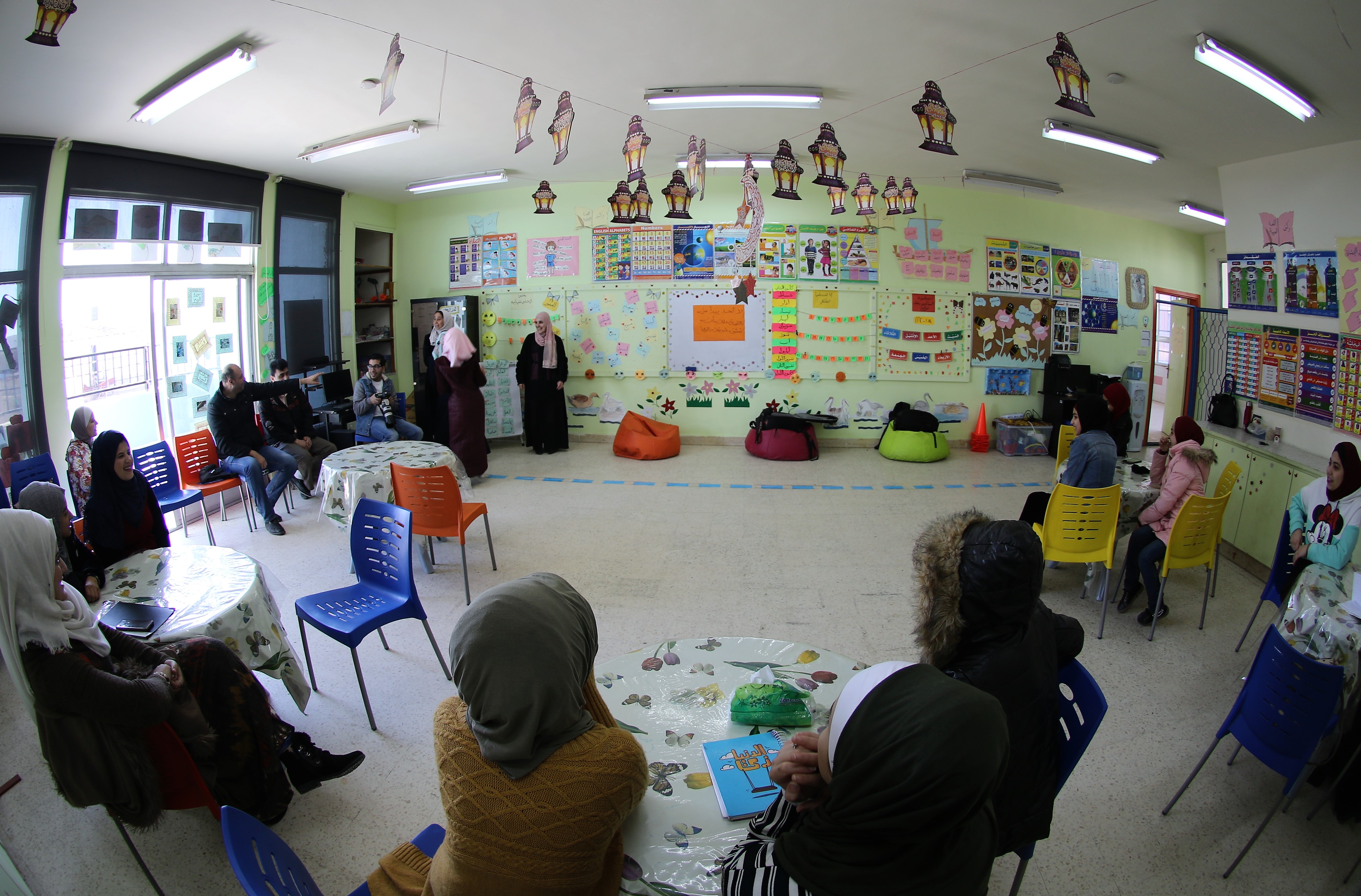In March 2020, the Jordanian Ministry of Education immediately, indefinitely closed all schools in COVID lockdown. 1.3 million children and youth went on unexpected holiday, including 4,000 youth in the non-formal education (NFE) program of the Ministry and Questscope (an INGO in Jordan focused on peripheralized youth).
Within a short period of time, 80% of those youth (3,000 teenagers!) were back in “class,” contacting each other and their educational facilitators (aka teachers) through WhatsApp and Facebook. They organized lessons and conversations around COVID and stay-safe messages. Parents got involved. Older and younger brothers and sisters, too.
The responses of 3,000-plus youth to organize themselves with technology to continue learning with their facilitators made a lasting impression. Many of the youth did not have access to devices and data. But they wanted to be back in NFE, so they figured out how to reconnect.
One of these learners, Wisam, had for 3 years previously been working for pennies a day instead of attending school. Wisam is one of tens of thousands of youth, 13-20, who opted to do other things instead of school.
Our first question to ourselves was, Why? A long list of answers: “I don’t feel safe. The teacher has too many students to help me. I probably can’t learn, anyway.”
We set ourselves to understand, from the point of view of the young person out-of-school (OOS), how they experienced learning? What made it “better” for them to go somewhere else and do something else?
Making it better to get an education is our core approach since the launch of NFE in 2002, especially in the Covid19 pandemic which put more than 1 million youth out of school. And introducing more tech channels to OOS youth was a critical pathway to attract and empower young learners to continue their educational journey UP instead of DOWN.
There were 3 seminal lessons that guided us: (a) negative self-perception by youth of their abilities reinforced through unfortunate experience in the formal classrooms; (b) they felt “alone,” - there was no “support space” in which to identify and overcome the risks they faced; (c) families were unaware of developmental needs of their growing young person, resulting in emotional and social isolation – reinforcing short-term choices (like working instead) that ensured more isolation from positive educational experiences.
For young people like Wisam, to focus on academic goals was to ensure that they would volunteer to opt out. But to focus on their social and emotional learning (SEL) in a highly relational environment would rekindle that spark in any young person to learn – leading to improved academic performance.
The Non-Formal Education (NFE) program, a unique, innovative initiative implemented jointly by the Jordanian Ministry of Education (MOE) and Questscope, an INGO, makes learning attractive for all students who are essentially volunteer learners who come and stay because they like to be there). The key to the program is an adult-youth partnership with a new kind of teacher – a facilitator of learning who explores with students those topics that are relevant to them – who uses technology in innovative ways to support the natural thirst for learning. Facilitators are highly trained to transfer academic knowledge through widely varied dialogue and activities that respond to how youth want to learn.
A mind is a terrible thing to waste. A facilitator skillfully develops critical thinking abilities through social and emotional learning (SEL) approaches, while accomplishing curriculum goals (and meeting testing standards of MOE). Upon graduation at the 10th grade level from the NFE program, MOE certifies students for further vocational and/or secondary education – opening doors to higher education – a goal once not on the radar of Wisam and others like Wisam.
Hope that things can be better for Wisam is a critical mindset to instill and insightful use of technology is an astonishing generator of hope. For a young person to succeed in the 21st century, intuitively mastering elements of tech is a critical accomplishment. We have unique opportunities to build competencies in use of tech that directly support SEL that directly impacts academic performance. In communal learning spaces, virtual or in-person, in COVID or other crises, technological expertise and participatory pedagogy are rooted side-by-side in adult-youth partnerships that are exciting, attractive, and productive. Now Wisam can gain the ability to get into a life direction that Wisam she wants and is motivated for.
This demands both linear and lateral thinking in the use of tech for education. It is linear because efforts are directed towards goals – first to obtain basic then secondary education, then opportunity for better income and often tertiary education. It is lateral because a wide variety of experiences with tech focused on learning form critical thinking capacity and competency that come together to add energy towards reaching those goals.
Our educational efforts must enable all of our Wisams to attain the mental stamina, critical knowledge, connectivity to relationships and practical experience using technology that are key to thriving in that tomorrow that we will all face together.



